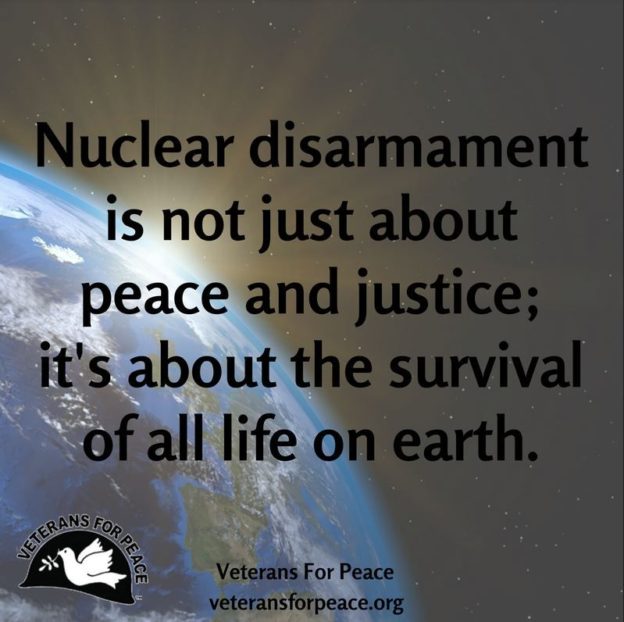Join us from your home for this family friendly event to commemorate the lives lost in the Hiroshima and Nagasaki bombings 75 years ago and make sure that such nuclear attacks never again take place. We remember the past, so that we can envision and work for a peaceful, just and nuclear-free future. Due to COVID-19, there will be no public gathering for Lanterns for Peace but we will still be holding a lantern launch streamed online.
Lanterns for Peace 2020 Youtube Video
Lanterns for Peace: Physicians for Social Responsibility-Wisconsin
https://www.facebook.com/watch/?v=2313658145446744
https://www.facebook.com/PSRWisconsin/videos/617630782189945/
The use of nuclear weapons is a war crime. The use of nuclear weapons violates multiple parts of the Laws of Armed Conflict.
The bomb was dropped, they say, to save the lives of thousands of Americans who would otherwise have been killed in an invasion of the Home Islands. Hiroshima and Nagasaki were largely destroyed and the lives of between 135,000 and 300,000 mostly Japanese women, children, and old people were sacrificed—most young men were away at war—as the result of a terrible but morally just calculus aimed at bringing an intractable war to a close.
The top American military leaders who fought World War II, much to the surprise of many who are not aware of the record, were quite clear that the atomic bomb was unnecessary, that Japan was on the verge of surrender, and—for many—that the destruction of large numbers of civilians was immoral. Most were also conservatives, not liberals. Adm. William Leahy, President Truman’s Chief of Staff, wrote in his 1950 memoir I Was There that “the use of this barbarous weapon at Hiroshima and Nagasaki was of no material assistance in our war against Japan. The Japanese were already defeated and ready to surrender.… in being the first to use it, we…adopted an ethical standard common to the barbarians of the Dark Ages. I was not taught to make war in that fashion, and wars cannot be won by destroying women and children.”
Fleet Adm. Chester Nimitz, Commander in Chief of the Pacific Fleet, stated in a public address at the Washington Monument two months after the bombings that “the atomic bomb played no decisive part, from a purely military standpoint, in the defeat of Japan…” Adm. William “Bull” Halsey Jr., Commander of the US Third Fleet, stated publicly in 1946 that “the first atomic bomb was an unnecessary experiment…. It was a mistake to ever drop it…. [the scientists] had this toy and they wanted to try it out, so they dropped it…”
Historians still do not have a definitive answer to why the bomb was used. Given that US intelligence advised the war would likely end if Japan were given assurances regarding the Emperor—and given that the US military knew it would have to keep the Emperor to help control occupied Japan in any event—something else clearly seems to have been important. We do know that some of President Truman’s closest advisers viewed the bomb as a diplomatic and not simply a military weapon. Secretary of State James Byrnes, for instance, believed that the use of atomic weapons would help the United States more strongly dominate the postwar era. According to Manhattan Project scientist Leo Szilard, who met with him on May 28, 1945, “[Byrnes] was concerned about Russia’s postwar behavior…[and thought] that Russia might be more manageable if impressed by American military might, and that a demonstration of the bomb might impress Russia.
”History is rarely simple, and confronting it head-on, with critical honesty, is often quite painful. Myths, no matter how oversimplified or blatantly false, are too often far more likely to be embraced than inconvenient and unsettling truths.
Even now, for instance, we see how difficult it is for the average US citizen to come to terms with the brutal record of slavery and white supremacy that underlies so much of our national story. Remaking our popular understanding of the “good” war’s climactic act is likely to be just as hard. But if the Confederate battle flag can come down in South Carolina, we can perhaps one day begin to ask ourselves more challenging questions about the nature of America’s global power, and what is true and what is false about why we really dropped the atomic bomb on Japan.”

